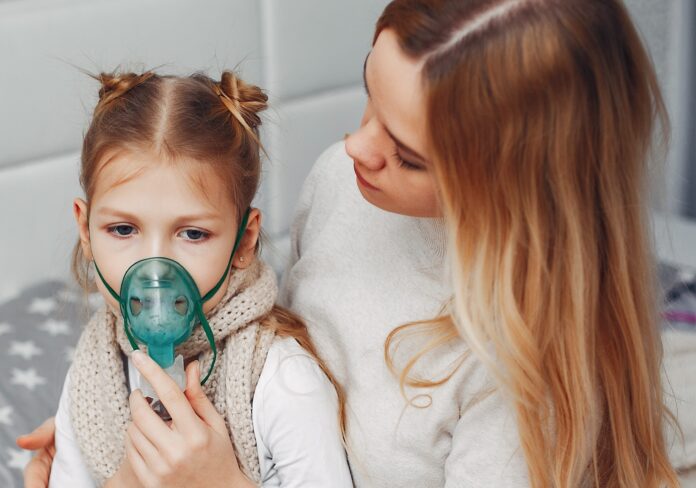A national study on childhood asthma led by Henry Ford Health System has found that family history, race and sex are associated in different ways with higher rates of asthma in children.
In a study published in JAMA Pediatrics (hyperlink goes here), researchers found that children with at least one parent with a history of asthma had two to three times higher rates of asthma, mostly through age 4. They also reported that asthma rates in black children were much higher than white children during their preschool years, but the rates of incidence dropped in black children after age 9, while they increased for white children later in childhood.
“These findings help us to better understand what groups of children are most susceptible to asthma early in life,” said Christine Cole Johnson, Ph.D., MPH, chair of the Department of Public Health Sciences at Henry Ford and the study’s lead author. “We can now use this information to develop interventions for those children at highest risk.”
More than 12,000 children born between 1980 and 2014 were followed in the study. Data was collected from 31 different childhood asthma cohort studies in 30 U.S. states and Puerto Rico as part of the national Environmental Influences on Child Health Outcomes (ECHO) program. The children in the cohorts were born at 34 weeks or greater with no evidence of lung disease and had been followed from birth to at least their fifth birthday. The collected data also was based on whether the children received a doctor’s asthma diagnosis and included a family history of asthma, sex, race, ethnicity, birth year and the birth mother’s education. The gender of the children was nearly equal, 51% boys and 49% girls; 52% were white and 23% black.
Funded by the U.S. National Institutes of Health, Dr. Johnson and researchers sought to measure whether childhood asthma incidence differed by family history, race and sex. Key highlights:
- Children with a family history of asthma had a two-fold increase risk asthma at age 4 through age 14 compared to those without a family history
- Boys with a family history of asthma had higher rates of asthma than girls in their early years. By age 14, their rate of incidence was about the same
- Black children had the highest rates of asthma regardless of a family history
“The ECHO consortium presents a unique opportunity for us to better understand patterns of asthma development given its large and diverse participant population,” said Aruna Chandran, M.D., MPH, of Johns Hopkins University Bloomberg School of Public Health and a study co-author. “We hope the results of this study will be useful to both researchers and healthcare providers to better treat and ultimately even prevent asthma in children.”
Asthma is a major cause of disease in children that can lead to permanent lung damage. According to the Centers for Disease Control and Prevention, an estimated 1 in 12 children 17 and younger have asthma in the United States, which causes wheezing, difficulty breathing and coughing. Every year, 1 in 6 children with asthma visits the Emergency Department, and about 1 in 20 children are hospitalized.
Story Credit: Henry Ford Health System/Newswise
Photo Credit: prostooleh/freepik



































